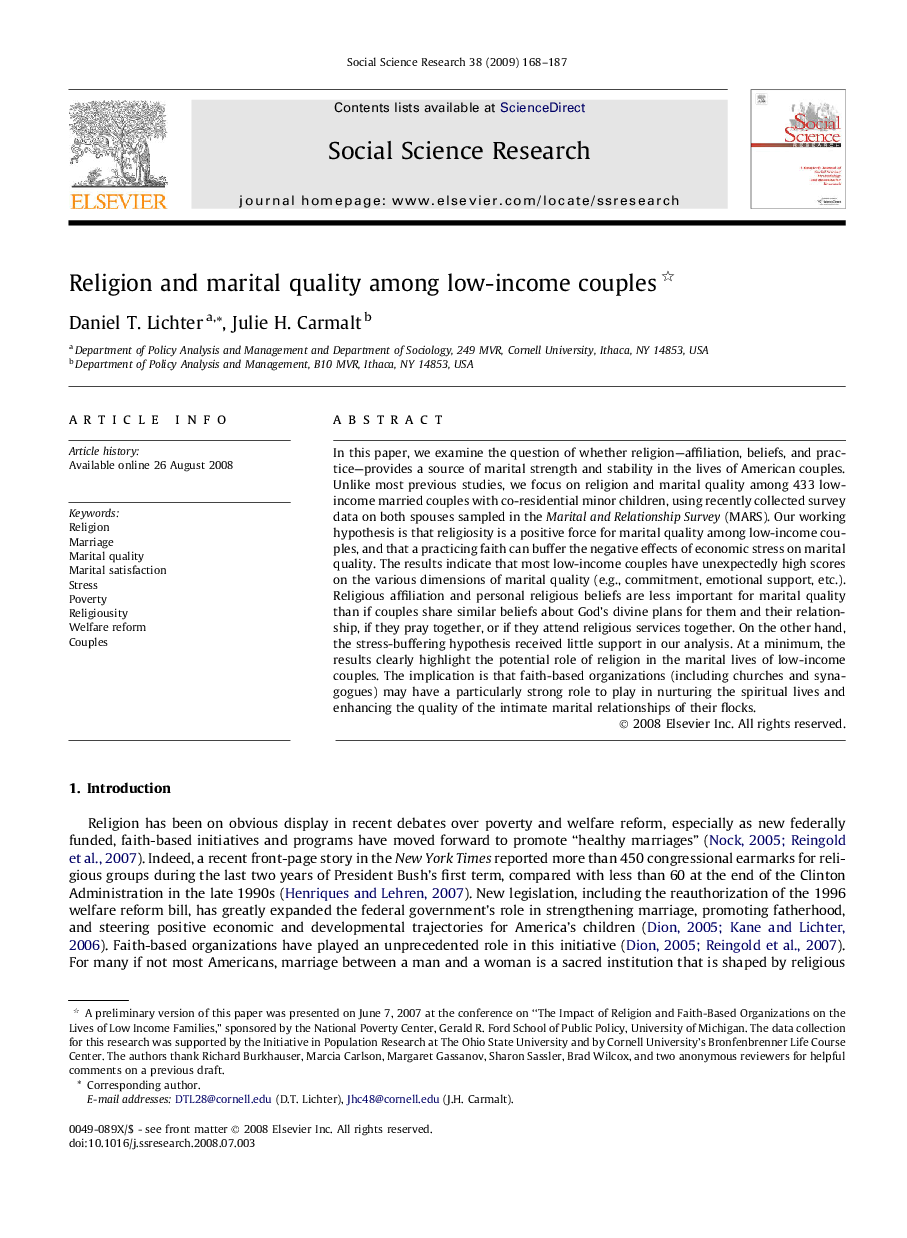| Article ID | Journal | Published Year | Pages | File Type |
|---|---|---|---|---|
| 956454 | Social Science Research | 2009 | 20 Pages |
In this paper, we examine the question of whether religion—affiliation, beliefs, and practice—provides a source of marital strength and stability in the lives of American couples. Unlike most previous studies, we focus on religion and marital quality among 433 low-income married couples with co-residential minor children, using recently collected survey data on both spouses sampled in the Marital and Relationship Survey (MARS). Our working hypothesis is that religiosity is a positive force for marital quality among low-income couples, and that a practicing faith can buffer the negative effects of economic stress on marital quality. The results indicate that most low-income couples have unexpectedly high scores on the various dimensions of marital quality (e.g., commitment, emotional support, etc.). Religious affiliation and personal religious beliefs are less important for marital quality than if couples share similar beliefs about God’s divine plans for them and their relationship, if they pray together, or if they attend religious services together. On the other hand, the stress-buffering hypothesis received little support in our analysis. At a minimum, the results clearly highlight the potential role of religion in the marital lives of low-income couples. The implication is that faith-based organizations (including churches and synagogues) may have a particularly strong role to play in nurturing the spiritual lives and enhancing the quality of the intimate marital relationships of their flocks.
